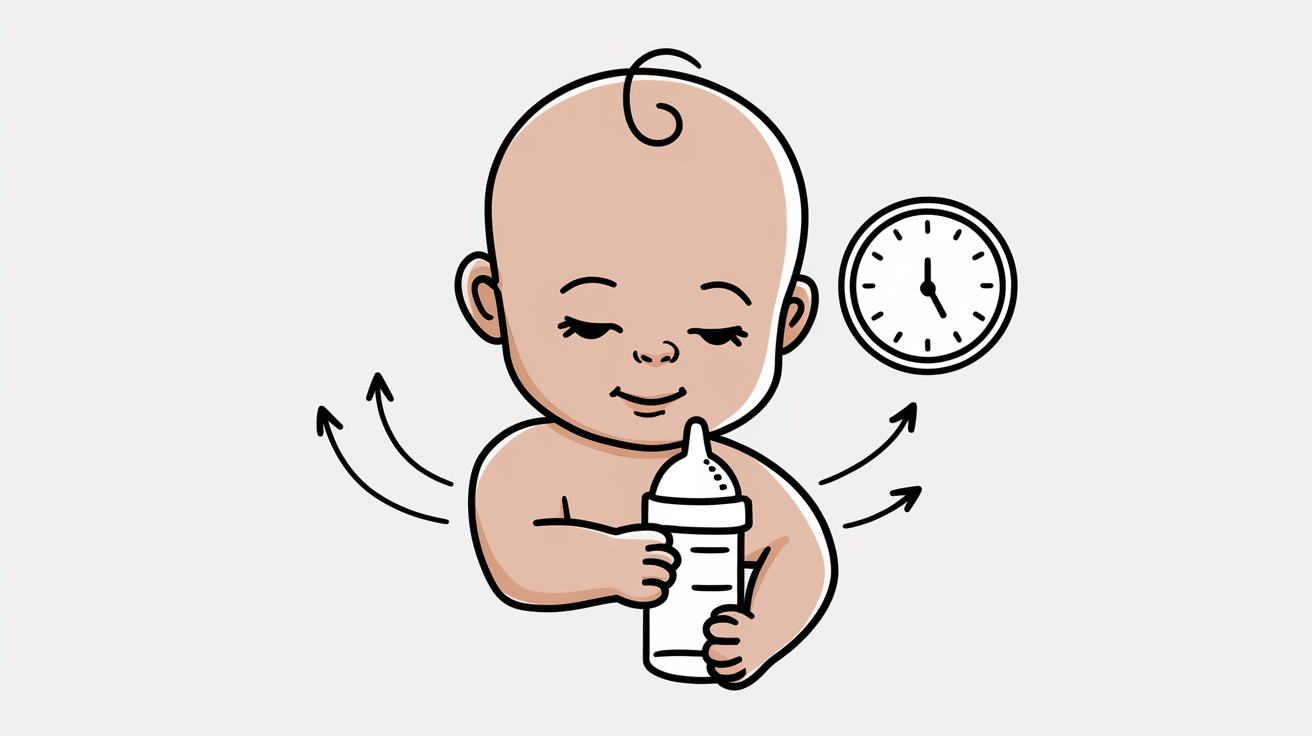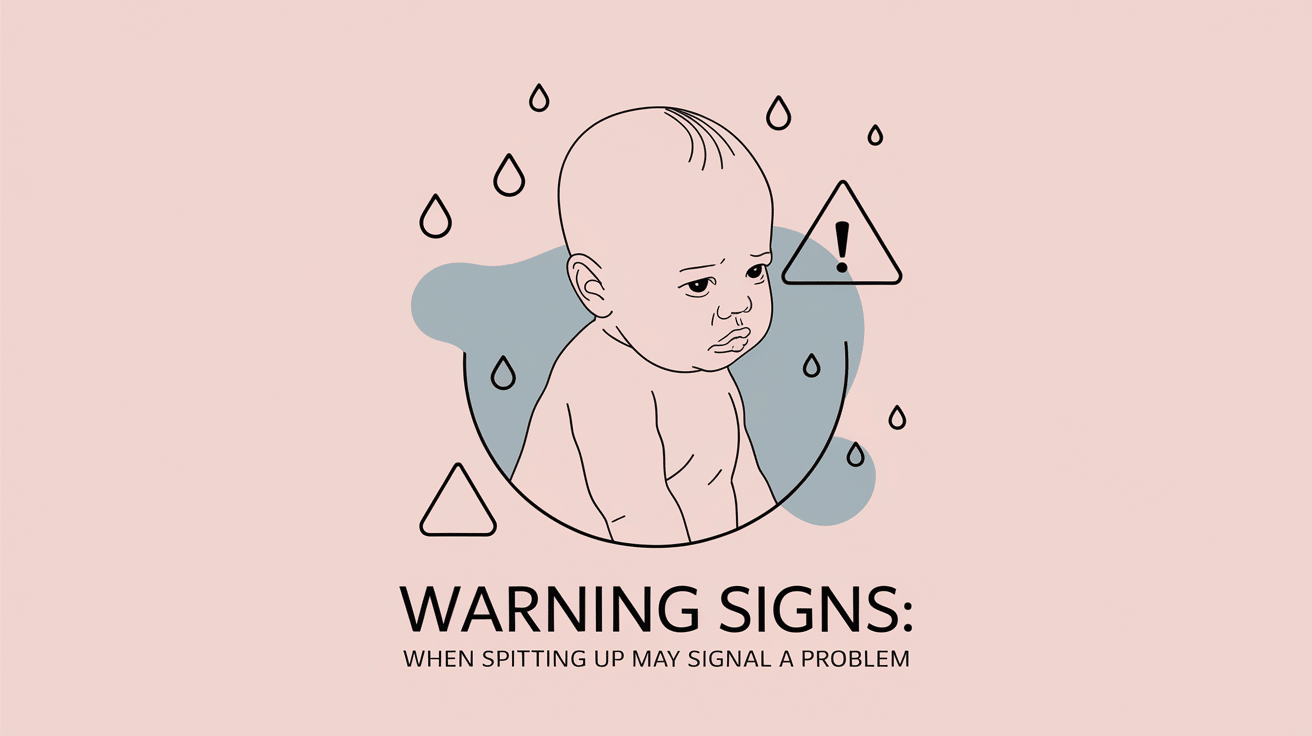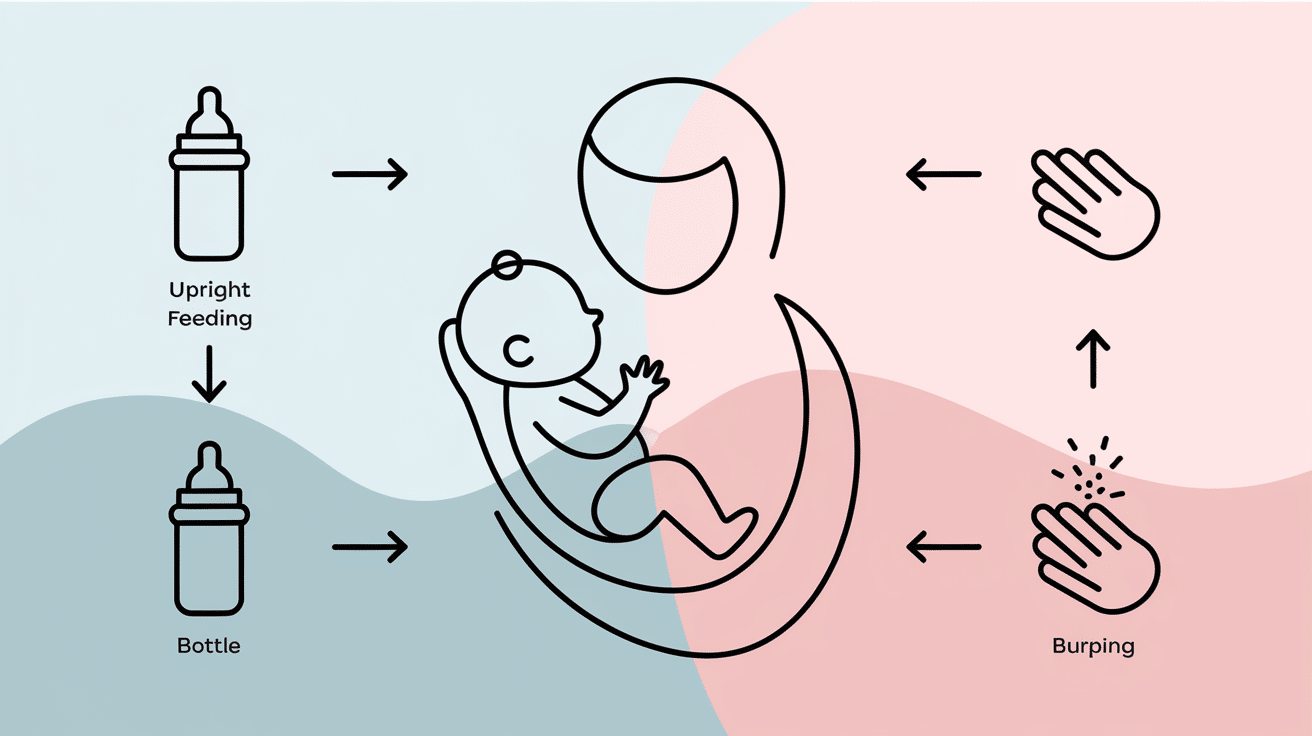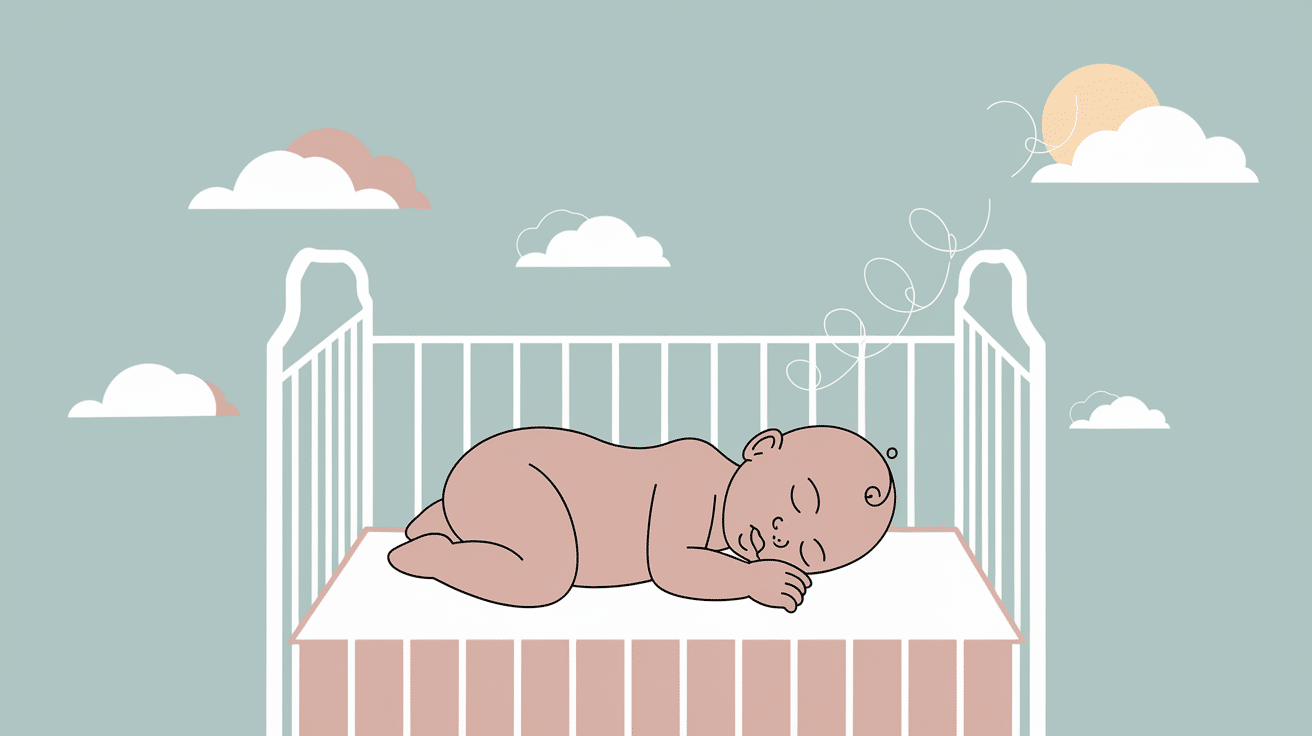
Has your shirt been a canvas for baby art lately—swirls of milk, formula, and partially digested meals?
You’re in good company! Nearly 70% of healthy infants regularly transform their parents into walking laundry services during their first months of life.
That constant dribble or occasional gush from your baby’s mouth might have you wondering if something’s wrong, but in most cases, it’s perfectly normal.
This natural phenomenon—technically called infant reflux—happens when your baby’s developing digestive system has yet to master keeping stomach contents where they belong.
While your washing machine works overtime, rest assured that this messy milestone is typically just a temporary phase in your parenting expedition. Let’s examine what’s behind those adorable but persistent spit-ups.
What Is Spitting Up?
Have you ever wondered if what your baby is doing is spitting up or something more serious? Spitting up is when milk or formula flows back up from your baby’s stomach and out of their mouth. It’s usually gentle—more like a dribble or small gush—and happens without discomfort.
Vomiting, on the other hand, is more forceful and can make your baby upset. Think of spitting up as a laundry problem, while vomiting is a medical concern.
Why does it happen? Babies have a small valve between their esophagus (food pipe) and stomach. This valve is still developing and can be a bit leaky, allowing stomach contents to flow back up easily. It’s like a door that doesn’t close tightly yet.
Most babies outgrow spitting up by their first birthday when this valve gets stronger. Until then, bibs and burp cloths will be your best friends!
Causes of Spitting Up

Immature Digestive System
Your baby’s digestive system is like a new computer—it has all the right parts but hasn’t been fully programmed yet. That valve we mentioned earlier (called the lower esophageal sphincter) is still learning its job. Until it masters the art of staying closed, some milk will find its way back up.
Feeding-Related Factors
Overfeeding can affect your baby’s tiny stomach. Imagine filling a water balloon past its capacity—something’s bound to spill out! Similarly, feeding too quickly doesn’t give your baby time to process what’s coming in properly.
Air bubbles are another culprit. When babies gulp air during feeding, that air needs to escape somehow. Often, it brings some milk along for the ride.
Did you know that how you feed your baby matters almost as much as what you feed them?
Posture and Positioning
Gravity is not your baby’s friend when it comes to keeping milk down. Lying flat right after eating makes it easier for milk to flow back up. Think about how you feel after a big meal—you probably don’t want to lie down flat either!
Dietary Influences
If you’re breastfeeding, your diet might play a role. Some babies are sensitive to certain foods in mom’s diet, like dairy, caffeine, spicy foods, or acidic fruits. These can sometimes increase spitting up in sensitive babies.
When Is Spitting Up Normal?

Here’s some good news: spitting up a tablespoon or two after feedings is completely normal. Some babies might spit up after every feeding, while others might do it occasionally.
The most important question isn’t how much they spit up but rather how they’re growing. If your baby is gaining weight well and seems happy (doctors call these “happy spitters“), the spitting up is likely just a laundry problem, not a health problem.
Most babies start spitting up around 2-3 weeks of age, and it peaks at 4-5 months. By the time they’re sitting up well and eating solid foods (around 6-7 months), many babies have less trouble with spitting up.
Warning Signs: When Spitting Up May Signal a Problem

While most spitting up is normal, there are some red flags to watch for:
- Forceful spitting up that shoots across the room
- Green or yellow fluid or anything that looks like coffee grounds or blood
- Poor weight gain or refusing to eat
- Starting to spit up after 6 months of age when they weren’t doing it before
- Crying a lot during or after feedings
- Trouble breathing or making wheezing sounds
- Fewer wet diapers than normal
If you notice any of these signs, it’s time to call your pediatrician. These could signal more serious conditions like pyloric stenosis (a blockage between the stomach and small intestine) or GERD (gastroesophageal reflux disease).
Strategies to Reduce Spitting Up

While you can’t completely prevent spitting up, several simple techniques can significantly reduce its frequency and volume.
These practical approaches focus on how you feed your baby, positioning during and after feedings, and making small environmental adjustments.
With consistent application, these strategies can help keep both your baby and your clothes cleaner.
Feeding Techniques
Simple adjustments to your feeding routine can significantly reduce spitting up; rather than offering larger, less frequent feedings that might affect your baby’s small stomach, try smaller portions given more often throughout the day.
This prevents overfilling while still ensuring adequate nutrition. Incorporate regular burping breaks during each feeding session—not just afterward—to release trapped air bubbles before they build up and force milk back up.
If you’re bottle-feeding, check that you’re using an appropriate nipple size. When the bottle is inverted, the ideal flow should be a steady drip rather than a fast pour.
An excessively large nipple hole causes milk to flow too quickly, leading to gulping, excess air intake, and ultimately more spit-up. These minor changes often yield major improvements in your baby’s comfort.
PRO TIP: The right burping technique can work wonders! Try the “football hold” where baby sits on your lap, leaning slightly forward, while you support their chin and chest with one hand and pat their back with the other.
Positioning Tips
How you hold your baby matters:
- Keep your baby upright for 20-30 minutes after feeding
- When feeding, hold the baby at a 30-45 degree angle, not flat
- Avoid bouncy seats, car rides, or tummy time right after feedings
Experts recommend that babies sleep on their backs despite concerns about spitting up. The risk of choking from spitting up is very low in healthy babies, while the risk of SIDS (Sudden Infant Death Syndrome) is much higher when babies sleep on their stomachs.
Environmental and Maternal Adjustments
Some simple lifestyle changes can help:
- Keep your baby away from cigarette smoke, which can increase reflux
- If you’re breastfeeding, try eliminating dairy products from your diet for two weeks to see if it helps
Special Considerations: Spitting Up While Sleeping

Many parents fear their baby might choke when spitting up during sleep, but this concern is largely unfounded.
Healthy infants have built-in protective reflexes that trigger coughing or swallowing if milk rises into their throat while sleeping.
Though you can’t eliminate nighttime spit-up, you can reduce its frequency with a few simple strategies. First, aim for at least a 30-minute gap between the final regular feeding and putting your baby down for the night.
You might also try a “dream feed”—a gentle feeding when your baby is drowsy but not fully asleep—as the last feeding before you go to bed.
Most importantly, always place your baby on their back to sleep, regardless of how frequently they spit up.
This position remains the safest for preventing SIDS, and your baby’s natural reflexes will handle any spit-up that occurs.
PRO TIP: Use fitted crib sheets that stay in place well, and have an extra set ready to go for middle-of-the-night changes. Some parents find waterproof mattress covers helpful for protecting the mattress during this phase.
When to Seek Medical Advice?
Contact your pediatrician if your baby shows concerning symptoms like poor weight gain, painful spitting up, back arching during feedings, increasingly forceful spit-up, feeding refusal, or any previously mentioned warning signs.
When medical issues are suspected, your doctor might suggest specialized formulas for babies with milk protein sensitivities, evaluate for conditions such as GERD or pyloric stenosis, or occasionally prescribe acid-reducing medications in more serious cases.
However, it’s reassuring to know that the vast majority of infants with spitting-up issues don’t require medical intervention. Most cases naturally improve as your baby’s digestive system matures over time.
With proper monitoring and basic care strategies, you can confidently guide this messy but typically harmless phase of your baby’s development.
The Bottom Line
Spitting up is a normal, if messy, part of babyhood. Most babies outgrow it by their first birthday as their digestive systems mature.
Until then, keep plenty of burp cloths on hand and remember that a baby who’s growing well and seems happy is likely just fine, even with frequent spit-ups. What matters most isn’t how clean your clothes stay but whether your baby is comfortable, eating well, and thriving.
Soon enough, you’ll move on to other messy stages of childhood—and you might even miss these simpler days of spit-up!
